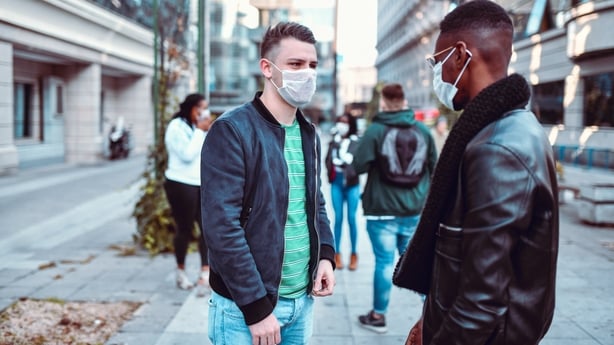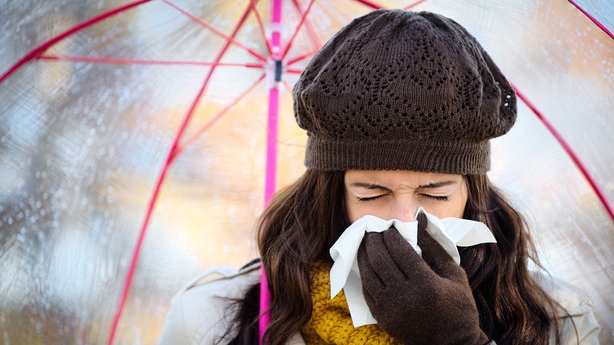"It's just luck, I suppose."
That's one man's response to not having caught Covid in the two years since the virus hit Irish shores. He was one of a handful of people reporter Brian O'Connell spoke to for Today with Claire Byrne about the few who have so far dodged the virus, through a combination of diligence and luck.
"I obviously was careful as much as I could, but I wasn't paranoid", one woman said, adding that no one in her family got Covid. "At some point I was anxious that they didn't get it! I'm not wearing masks inside anymore."
"Maybe I got it and I was asymptomatic but I was testing negative", another man told O'Connell. "I think people should use their own initiative and be mindful of everybody else as we have all been. Just because you're being told you don't have to wear masks doesn't mean that you shouldn't."

These are the kinds of people Trinity College, Dublin researchers are looking to speak to as part of a study into couples who have shared beds while one was Covid positive and the other remained Covid negative. Cliona O'Farrelly, Professor of Comparative Immunology & Biochemistry, Trinity College joined the show to speak to Claire about it.
"This is something that has been interesting me for a long time", she said. She started studying immune responses after the Hepatitis C scandal, when a cohort of rhesus negative women got anti-D which was contaminated with Hepatitis C virus. She became interested in why some women got got the anti-D didn't get contaminated.
She said that the women who didn't get infected have a stronger "innate immune response", which "is the immune response that kicks in immediately on encountering the virus. It's part of the immune system that's right at the site where the virus is".
However, she said that it isn't only biology that keeps some people from catching viruses and illnesses. "We should make it clear that a whole lot of people are not becoming infected because they're being super careful", she said.

"They're to be congratulated and certainly for that to be continued. But in addition to the people who are not getting it, because they're very very careful, there are those whose innate immune system - that's what we believe and that's what we're studying - is able to keep the virus away without becoming infected at all."
Her research team is looking for people who have, ideally resisted the virus twice, both in the first wave before vaccination and in recent months with Omicron. "We need people whose partner was PCR positive while they shared a room with them, and they've been PCR negative."
One of the reasons could be down to genetics, O'Farrelly said, as some studies showed that people who had very severe responses to infection have "changes in some of their immune genes so there's a genetic marker of severity of infection".
She and her team are studying this are looking for these genetic markers: "It's like looking for a needle in a haystack because the human genome is so variable."
Is this innate immune response rare? "We found that more women did not get infected than expected", O'Farrelly said. "People think that Hepatitis C is very infectious if you get a contaminated blood, but in fact quite a few women received the contaminated blood but did not become infected, so we think that it's not completely rare.
"But we have no idea, Claire. This is one of the other big questions."
For more information on the study, visit the Viral Resistance Project website. Listen back to the full interview here.


